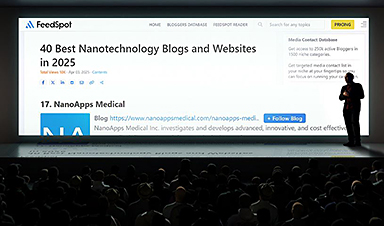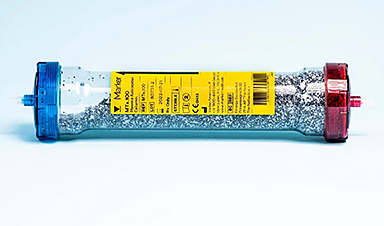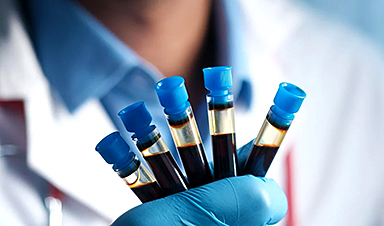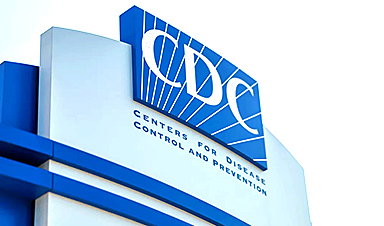Imagine being a patient in the early 19th century, when all ailments were considered “humors” to be ejected from the body. To restore balance, various techniques such as diets, natural herbs, or bloodletting with leeches were used – the only “technology” available at the time.
Even when the basic structure of modern medicine came into place, the average life expectancy was just 34 years old in 1913. A patient from that era would surely be amazed by the leaps and bounds that healthcare has undergone since then, thanks to the influence of technology.
The Healthtech Revolution
Today’s infographic dives into some of the technological advances that are pushing the boundaries of modern healthcare, and what this could mean for the sector.
What is Healthtech?
Healthcare technology, or healthtech, is the use of technology to better treat patients. Many such inventions have been credited for saving countless human lives since the 1800s.
Medicines, devices, procedures, and even organizational systems contribute to expanding life expectancy and improvements in quality of life.
From Fiction to Reality
Breakthroughs such as robotic arms, 3D bio-printed organs, and virtual reality for pain relief are being developed in the medical sector, drawing influences from the big screen.
Technologies that were once the staple of science fiction movies are rapidly becoming realities.
— Jeroen Tas, Chief Innovation Officer, Philips
But there’s a less tactile application of technology from science fiction that will arguably have an even bigger impact on healthcare: artificial intelligence (AI).
By recognizing patterns in behavior and creating their own logic, machine learning algorithms are set to transform various aspects of healthcare ranging from the automation of mundane tasks to the creation of entirely new drugs.
Healthcare at our Fingertips
Healthcare is also getting more mobile and connected, putting the Internet of Things (IoT) and mobile health (mHealth) at center stage as sources of potential disruption.
These technologies can help in everything from offering patients a convenient way to book appointments and pay bills online, to allowing doctors to use electronic health records to access and share information.
Wearable devices and smartphone apps are spiking in adoption as they unlock the option to monitor and manage individual health anytime, anywhere. This is creating an explosion in personal health data, which consumers are willing to share with their doctor if it will benefit them or others.
The Coming Healthtech Boom
Artificial intelligence, IoT, and mHealth are contributing to rapidly expanding healthtech sector, and each are expected to experience rapid growth by 2025:
| Healthcare segment | Current* | Projected (2025E) | CAGR |
|---|---|---|---|
| Artificial Intelligence | $2.1 billion | $36.1 billion | 50.2% |
| Global IoT | $120.2 billion | $543.3 billion | 20.2% |
| Global mHealth | $4.16 billion | $111.8 billion | 44.2% |
*2018E for AI, 2017 for IoT, 2016 for mHealth.
While healthtech won’t replace your doctor anytime soon, but it will certainly change your experience with healthcare – both on the front-end and behind the scenes.
News This Week
Measles Is Back: Doctors Warn of Dangerous Surge Across the U.S.
Parents are encouraged to contact their pediatrician if their child has been exposed to measles or is showing symptoms. Pediatric infectious disease experts are emphasizing the critical importance of measles vaccination, as the highly [...]
AI at the Speed of Light: How Silicon Photonics Are Reinventing Hardware
A cutting-edge AI acceleration platform powered by light rather than electricity could revolutionize how AI is trained and deployed. Using photonic integrated circuits made from advanced III-V semiconductors, researchers have developed a system that vastly [...]
A Grain of Brain, 523 Million Synapses, Most Complicated Neuroscience Experiment Ever Attempted
A team of over 150 scientists has achieved what once seemed impossible: a complete wiring and activity map of a tiny section of a mammalian brain. This feat, part of the MICrONS Project, rivals [...]
The Secret “Radar” Bacteria Use To Outsmart Their Enemies
A chemical radar allows bacteria to sense and eliminate predators. Investigating how microorganisms communicate deepens our understanding of the complex ecological interactions that shape our environment is an area of key focus for the [...]
Psychologists explore ethical issues associated with human-AI relationships
It's becoming increasingly commonplace for people to develop intimate, long-term relationships with artificial intelligence (AI) technologies. At their extreme, people have "married" their AI companions in non-legally binding ceremonies, and at least two people [...]
When You Lose Weight, Where Does It Actually Go?
Most health professionals lack a clear understanding of how body fat is lost, often subscribing to misconceptions like fat converting to energy or muscle. The truth is, fat is actually broken down into carbon [...]
How Everyday Plastics Quietly Turn Into DNA-Damaging Nanoparticles
The same unique structure that makes plastic so versatile also makes it susceptible to breaking down into harmful micro- and nanoscale particles. The world is saturated with trillions of microscopic and nanoscopic plastic particles, some smaller [...]
AI Outperforms Physicians in Real-World Urgent Care Decisions, Study Finds
The study, conducted at the virtual urgent care clinic Cedars-Sinai Connect in LA, compared recommendations given in about 500 visits of adult patients with relatively common symptoms – respiratory, urinary, eye, vaginal and dental. [...]
Challenging the Big Bang: A Multi-Singularity Origin for the Universe
In a study published in the journal Classical and Quantum Gravity, Dr. Richard Lieu, a physics professor at The University of Alabama in Huntsville (UAH), which is a part of The University of Alabama System, suggests that [...]
New drug restores vision by regenerating retinal nerves
Vision is one of the most crucial human senses, yet over 300 million people worldwide are at risk of vision loss due to various retinal diseases. While recent advancements in retinal disease treatments have [...]
Shingles vaccine cuts dementia risk by 20%, new study shows
A shingles shot may do more than prevent rash — it could help shield the aging brain from dementia, according to a landmark study using real-world data from the UK. A routine vaccine could [...]
AI Predicts Sudden Cardiac Arrest Days Before It Strikes
AI can now predict deadly heart arrhythmias up to two weeks in advance, potentially transforming cardiac care. Artificial intelligence could play a key role in preventing many cases of sudden cardiac death, according to [...]
NanoApps Medical is a Top 20 Feedspot Nanotech Blog
There is an ocean of Nanotechnology news published every day. Feedspot saves us a lot of time and we recommend it. We have been using it since 2018. Feedspot is a freemium online RSS [...]
This Startup Says It Can Clean Your Blood of Microplastics
This is a non-exhaustive list of places microplastics have been found: Mount Everest, the Mariana Trench, Antarctic snow, clouds, plankton, turtles, whales, cattle, birds, tap water, beer, salt, human placentas, semen, breast milk, feces, testicles, [...]
New Blood Test Detects Alzheimer’s and Tracks Its Progression With 92% Accuracy
The new test could help identify which patients are most likely to benefit from new Alzheimer’s drugs. A newly developed blood test for Alzheimer’s disease not only helps confirm the presence of the condition but also [...]
The CDC buried a measles forecast that stressed the need for vaccinations
This story was originally published on ProPublica, a nonprofit newsroom that investigates abuses of power. Sign up to receive our biggest stories as soon as they’re published. ProPublica — Leaders at the Centers for Disease Control and Prevention [...]






















Leave A Comment